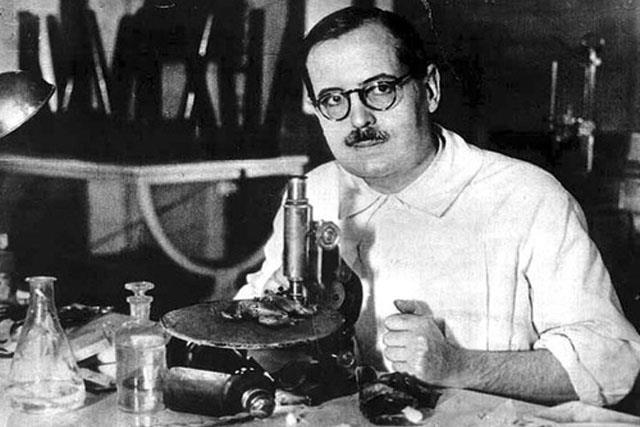Why was Bernardo Alberto Houssay Awarded the Nobel Prize for Physiology or Medicine in 1947?
Bernardo Alberto Houssay: Pioneering Discoveries in Physiology Earned Him the Nobel Prize
In 1947, the Nobel Prize for Physiology or Medicine was awarded to Bernardo Alberto Houssay, an Argentine physiologist, for his groundbreaking research in the field of endocrinology. Houssay’s contributions significantly advanced our understanding of hormonal regulation in the body and its impact on various physiological processes. This article explores the key discoveries that led to Bernardo Alberto Houssay’s well-deserved recognition by the Nobel Committee.

Insulin and Glucose Metabolism:
One of Houssay’s most important discoveries centered around the role of the hormone insulin in glucose metabolism. In the early 20th century, researchers were just beginning to comprehend the significance of insulin in regulating blood sugar levels and its implications for diabetes. Houssay, along with his team, conducted pioneering experiments that provided crucial insights into insulin’s actions.
Through carefully designed experiments on animals, Houssay demonstrated that the pancreas played a central role in the regulation of glucose metabolism. He showed that insulin, produced by the pancreas, facilitated the uptake of glucose by cells, thus lowering blood sugar levels. His work laid the foundation for understanding the physiological basis of diabetes mellitus and opened up new avenues for diabetes research and treatment.
Pituitary Gland and Hormonal Control:
Houssay’s research also delved into the intricate relationship between the pituitary gland and the regulation of various physiological processes. The pituitary gland, often referred to as the “master gland,” secretes numerous hormones that govern critical bodily functions.
In a series of influential studies, Houssay explored the role of the pituitary gland in processes such as metabolism, reproduction, and stress response. His work shed light on how hormones secreted by the pituitary gland influenced the body’s responses to different stimuli, laying the groundwork for understanding the complex network of hormonal control.
Diabetes and Metabolic Disorders:
Houssay’s investigations into diabetes not only advanced scientific understanding but also had practical implications for medical treatment. His research paved the way for further studies on diabetes and metabolic disorders, leading to improved diagnostic methods and therapeutic approaches for patients suffering from these conditions.
Houssay’s Legacy and Recognition:
In 1947, Bernardo Alberto Houssay was awarded the Nobel Prize for Physiology or Medicine in recognition of his significant contributions to endocrinology and his pivotal discoveries related to insulin, glucose metabolism, and hormonal regulation. The Nobel Committee acknowledged his research on the pituitary gland and its influence on various physiological functions as transformative for the field of endocrinology.
Beyond the Nobel Prize, Houssay’s legacy includes his influential role in the establishment of scientific research in Argentina. He founded the Institute of Physiology at the University of Buenos Aires and served as its director for many years. Houssay’s contributions not only enriched the scientific community in Argentina but also inspired generations of researchers to pursue excellence in the field of physiology and endocrinology.
Bernardo Alberto Houssay’s Nobel Prize in 1947 stands as a testament to his groundbreaking research in endocrinology and his significant contributions to our understanding of hormonal regulation and glucose metabolism. His pioneering work on insulin and the pituitary gland has left a lasting impact on the fields of physiology and diabetes research. Houssay’s recognition by the Nobel Committee not only highlighted the importance of his discoveries but also served as an inspiration for future scientists to explore the intricacies of hormonal control and its implications for human health and disease.




